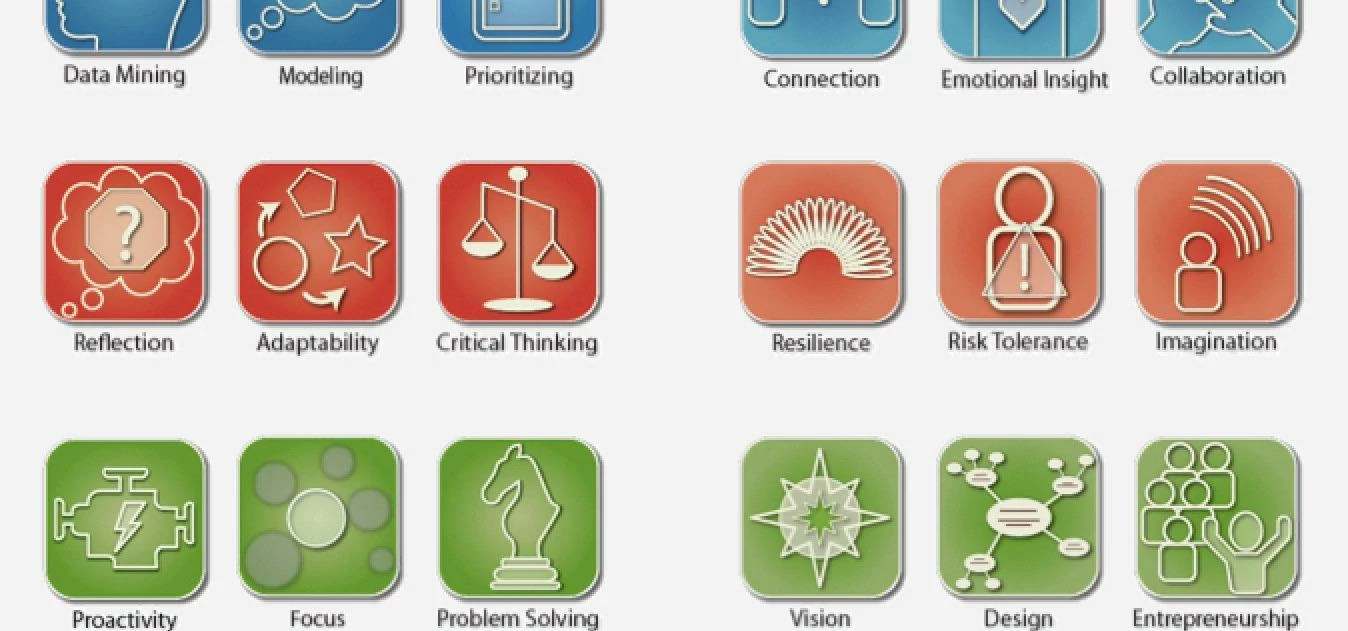
Partner Article
Top Ten Talents for employability
Have you got the top ten talents to be successful in 2020?
The World Economic Forum published a comprehensive report about the future of jobs over the next four years; their findings point to significant shifts and disruptions in the skills market that are rapid and far reaching. By 2020, more than a third of the desired skills sets will include talents that are not yet considered crucial to a job.
We all know about significant changing factors in our world, but do we understand how much they will impact the value of skills and talents in the workplace?
Fast forward five years and technology will be providing information and mechanics to get work done; our demand for physical skills and medical diagnostic ability, for example, are likely to reduce. Urbanisation and demographic changes will mean we’ll have to be better at flexible working and adapting to different situations. The tension between climate change and consumerism will increasingly demand imagination and problem solving skills to create new sustainable opportunities. Technical capability will need to be supplemented with strong social and emotional skills and we’ll all need to be good critical thinkers to navigate our complex world.
If skills and talents rather than knowledge and experience are the currency for a new age of employability - how prepared are we?
Every year since 2011, a global organisation dedicated to the development of emotional Intelligence has researched and collated data from thousands of assessments worldwide, to discover how social and emotional skills have developed or declined. The State Of The Heart was published by SixSeconds in 2016 and suggests that skills in decline globally include Collaboration, Proactivity and Risk Tolerance. Could we be heading towards a culture of socially isolated human beings who tend to react to changing situations rather than fight them and who prefer to ‘play it safe’?
The top ten talents we will need to develop rapidly are:
Problem Solving - the ability to find new approaches to complex situations
Critical Thinking - being able to process information logically and without bias
Creativity - creating new ways of imagining, communicating and experiencing the world
Collaboration - developing and sustaining good relationships with people to manage change together - especially the ability to teach others and learn from others.
Emotional Intelligence - being smart with feelings and acting with integrity and purpose
Communication - active listening, negotiation and persuasion
Decision Making - being able to make judgements and take decisions proactively
Service Orientation - understanding customers and acting in their interests
Cognitive Flexibility - easily navigating between mental tasks and the ability to consider several ideas at once, resulting in a flow of action in changing situations.
Adaptability - the ability to adopt and adapt thoughts feelings and actions appropriately
All of the top ten talents can be learnt and some of us have natural aptitude for some of them, yet what percentage of businesses are actively training their workforce in Creativity or Emotional Intelligence, for instance?
Many of the talents listed are not taught or currently measured, our education system, our businesses and our economic infrastructure will change. In the currency of talents and skills, what will you have to offer the future job market? How will you ensure that in the new currency you prepare people to be employable?
Katharine Roff is director of Act Positive
Questions about this article? 07976 535864
This was posted in Bdaily's Members' News section by Act Positive .
Enjoy the read? Get Bdaily delivered.
Sign up to receive our daily bulletin, sent to your inbox, for free.








 Raising the bar to boost North East growth
Raising the bar to boost North East growth
 Navigating the messy middle of business growth
Navigating the messy middle of business growth
 We must make it easier to hire young people
We must make it easier to hire young people
 Why community-based care is key to NHS' future
Why community-based care is key to NHS' future
 Culture, confidence and creativity in the North East
Culture, confidence and creativity in the North East
 Putting in the groundwork to boost skills
Putting in the groundwork to boost skills
 £100,000 milestone drives forward STEM work
£100,000 milestone drives forward STEM work
 Restoring confidence for the economic road ahead
Restoring confidence for the economic road ahead
 Ready to scale? Buy-and-build offers opportunity
Ready to scale? Buy-and-build offers opportunity
 When will our regional economy grow?
When will our regional economy grow?
 Creating a thriving North East construction sector
Creating a thriving North East construction sector
 Why investors are still backing the North East
Why investors are still backing the North East